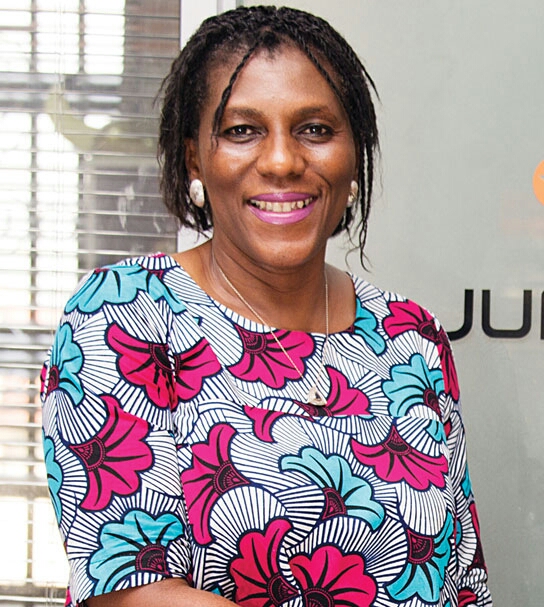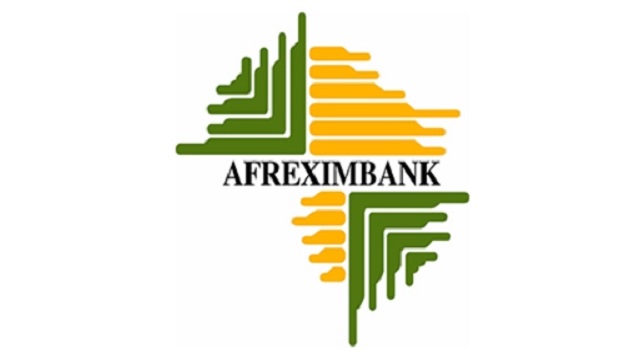E-Financial
Jumia Commends Framework For eCommerce Regulation in Nigeria

Mrs Juliet Anammah, Chief Executive Officer of Jumia Nigeria has described the recent tripartite motion by the Consumer Protection Council (CPC), the Standard Organisation of Nigeria (SON), and the Nigeria Custom Service (NCS) on the urgent need for government to develop a framework to regulate the activities of eCommerce platforms in Nigeria, as a round peg in a round hole.
She assured the government that Jumia will continue to offer necessary supports to ensure such framework is developed with the purpose of protecting unsuspecting shoppers online.
Anammah who made the disclosure in an interview with the Lagos studio of the China Global Television Network (CGTN), said: “we’re committed to helping government agencies understand how ecommerce operates.
“Even though it’s a section of retail, it is still a sub-sector of the total retail market. Because it is digital, there are some differentiations; we’re committed to helping government understand how that operates, how it has advanced in other countries, and what is coming ahead, because regulation isn’t just about constricting, it’s about supporting.”
“So the government wants to support it so it can grow in a way that is positive for the economy and the consumers.
“We share a lot of information, we’ve had sessions with CPC, we have an ongoing collaboration with SON, and many other agencies just to make sure we are constantly giving as much information as possible to assist them in shaping the right policies for the industry.
“In some respects also, we have participated where there are some legal frameworks to give our opinion on what we think based on what we see happen in other global environments relevant to ecommerce and Nigeria.
We give recommendations and engage one-to-one with relevant agencies,” she added.
The motion to develop a framework for regulating eCommerce in Nigeria was moved at a stakeholders’ forum in Lagos, with the theme: “The Role of Standards and Quality Regulation in Electronic Commerce,” organised by the Standard Organisation of Nigeria (SON).
“The need for a regulatory framework was borne from the need to improve the level of customers’ trust, and ensure quality for the money spent in the sub-sector,” said, the Director-General of SON, Chief Osita Aboloma.
It is worthy to mention that Nigeria is not the only country contemplating putting in place a framework for regulating the over US$13 billion worth industry.
The government of India, for instance, is planning to bring in an e-commerce law and a sector regulator to effectively deal with all aspects of online retail.
Some of the key provisions of the draft policy include: large eCommerce firms should phase out discounts within two years; eCommerce companies have to store consumer data within India; independent eCommerce regulator will deal with consumer complaints, compliance with FDI caps; and tax incentives for data localization and infrastructure status for data centres.
Although some of the salient features of the India ecommerce regulatory framework might not be directly applicable to Nigeria, it is expected that the government agencies vested with the responsibility of developing this framework should review countries with existing regulatory framework and rely on the recommendations of local eCommerce operators, such as Jumia.
E-Financial
Afreximbank Decries $330Bn MSME Financing Gap in Africa

Dr Yemi Kale, Group Chief Economist, Africa Export Import Bank (Afreximbank), has decried that despite micro, small and medium enterprises (MSMEs) constituting over 95 per cent of African businesses, they remain in the shadows of formal finance with a staggering $330 billion funding gap.

In his keynote at the G-20 SME Finance Forum 2025 in Johannesburg, he called for a bold re-imagining of global MSME finance and urged policymakers, financiers and entrepreneurs to build a financial architecture that is inclusive, resilient and fit for Africa’s 21st century.
He listed the obstacles to include information opacity, collateral dependency, policy incoherence, high cost of capital, weak digital infrastructure and entrepreneurial skills gap, which continue to limit MSME growth and competitiveness.
Noting that Afreximbank is acting as an ecosystem builder, he said, it is providing tailored trade and project finance, equity and venture support through FEDA, trade facilitation infrastructure, entrepreneurship and compliance training and targeted instruments for women and youth-led SMEs.
E-Financial
FCMB Partners Truecaller to Reinforce Customer Communication, Trust

First City Monument Bank (FCMB), one of Nigeria’s leading and most innovative customer-centric financial institutions, has announced a strategic partnership with Truecaller, the global platform for trusted communication, to transform the way it engages with customers across the country.

This collaboration is aimed at enhancing customer trust, reducing fraud, and ensuring that communication between FCMB and its customers is both safe, trusted, and seamless. With this partnership, FCMB will leverage Truecaller’s Customer Experience Solution and Branded Caller ID to ensure their customers receive transaction alerts, security notifications, and service updates with complete clarity and trust.
All FCMB calls will now display the bank’s verified name, logo, and brand details directly on customers’ mobile screens. This initiative reinforces FCMB’s strong commitment to digital safety, privacy, and customer trust. In today’s financial landscape, where impersonation and fraud are becoming increasingly sophisticated, Truecaller’s Customer Experience Solution is more than just a convenience — it is a vital safeguard for protecting customer relationships and enhancing confidence in every interaction.
In addition to smarter calling experience, FCMB has also activated its Business Page on the Truecaller app. This ensures that customers can independently discover, recognize, and engage with FCMB directly within the Truecaller app, reinforcing trust before the first point of contact is even made.
Together, these capabilities are helping FCMB strengthen its digital identity, reduce customer drop-offs, and improve the overall efficiency and credibility of its outbound communication efforts. Assured Authenticity: Customers can now instantly identify that calls from FCMB are genuine – reducing the risk of phishing or impersonation scams.
Enhanced Experience: Verified Business Caller ID brings clarity and eliminates uncertainty, particularly during critical communications such as security alerts or service updates.
Reinforced Trust: By adopting industry-leading communication capabilities, FCMB reaffirms its promise to protect customers with care, transparency, and innovation. Chief Information Officer at FCMB, Rotimi Famuwagun said: “At FCMB, our customers are at the heart of every innovation.
Through our partnership with Truecaller, we are strengthening communication security and fostering greater trust. When customers see the verified FCMB name along with our brand identity on incoming calls, they can be assured of transparency, authenticity, and care behind every interaction.’’
Priyam Bose, Global Head, GTM & Developer Products at Truecaller, shared: “At Truecaller, our goal is to help brands build meaningful, secure, and transparent communication at scale — especially in sectors like financial services where trust is everything.
“FCMB’s commitment to customer safety and trusted communication by embracing Truecaller Customer Experience Solution, FCMB is setting a new bar for what responsible, modern customer communication should look like — and we’re excited to support them on this journey.
E-Financial
Don’t Spray, Mutilate Naira – CBN

Central Bank of Nigeria (CBN) has warned Nigerians, especially market women, against spraying, hawking and mutilating of the naira, the nation’s national currency.

Olayemi Cardoso, governor, CBN, who was represented by Mrs Hakama Sidi Ali, acting director, Corporate Communications Department, CBN, spoke at the Central Bank Fair, held in Kaduna on Thursday.
He said the Fair was designed as a platform to interact with members of the public on the policies of the CBN for sustainable economic growth and development of the country.
The Fair was themed “Driving Alternative Payment Channels as Tools for Financial Inclusion, Growth and Accelerated Economic Development”.
The CBN boss said the theme was carefully chosen to address the links that catalyse Small and Medium Enterprises (SMEs) and other critical activities for the much-needed price stability.
“I urge everyone here to rely only on information disseminated through the verifiable official channels of the Central Bank of Nigeria. I also encourage you to respect and keep the naira clean. Do not spray, hawk, mutilate or counterfeit the naira. It is our critical national symbol.
“The core objective of this engagement, therefore, is to sensitise members of the public on how the Bank’s policies enhance their lives and livelihood and contribute to the growth and development of the Nigerian economy.
“Our dedicated team is on hand to take us through presentations on different operations of the Bank, ranging from the recent innovations in the Nigerian payments system; microfinance sub-sector activities; developments in the foreign exchange market, protection of financial consumers and all you need to know about the naira.
“The Management of the Bank is committed to stimulating productivity and financial inclusiveness, as well as delivering on its core mandate of monetary and price stability.
“These efforts have already started yielding positive results, which include increases of inflows of foreign investments, positive trade balances and remarkable progress in financial inclusion.
“The CBN has spearheaded several key policies to strengthen the financial system which includes exchange rate unification; to minimise arbitrage opportunities and reduce volatility in the foreign exchange market and cleared over $7bn verified backlog of FX forwards.
“It also include Bank Recapitalisation; to strengthen the resilience and global competitiveness of the banking sector, positioning it to support the $1 trillion economy, launched the non-resident BVN to connect Nigerians abroad with home banking, unveiled the Nigeria Payments System Vision 2028 (PSV 2028); to accelerate digital transformation, deepen financial inclusion, and position Nigeria more strongly in global payments.
“To further protect banks’ customers and strengthen consumer confidence, the CBN launched the Unified Complaints Tracking System (UCTS) to streamline the management of consumer complaints against financial institutions. Alongside this, USSD code (*959#) was also introduced for verifying licensed institutions, and enhancing transparency in the Nigerian financial sector,” Governor Cardoso said.
Speaking earlier, Ahmad Dalhatu, Kaduna branch Controller of CBN, reaffirmed that the CBN Fair is one of the Bank’s major public enlightenment initiatives aimed at sensitising members of the public on the Bank’s policies, programmes, and interventions.
“It serves as a platform to deepen financial literacy, promote transparency, and strengthen trust between the Bank and the Nigerian people.
“Over the years, the Fair has evolved into a veritable channel for fostering two-way communication between the Central Bank and the Nigerian public. It enables us not only to explain our policies but also to listen to your concerns, feedback, and expectations. This year’s event continues in that tradition, and I encourage everyone here to actively participate in the discussions.
“As we navigate the evolving economic landscape—both globally and locally—the need for increased public awareness of monetary policy, financial inclusion, consumer protection, digital payments, and intervention programmes cannot be overemphasised. The CBN remains committed to ensuring a sound financial system and an inclusive economy where every Nigerian can thrive,” Dalhatu said.

 E-Financial3 days ago
E-Financial3 days agoFidelity Bank Extends GAIM 6 Promo, Boosts Total Cash Rewards to ₦189m

 E-Financial2 days ago
E-Financial2 days agoFCMB Partners Truecaller to Reinforce Customer Communication, Trust

 News2 days ago
News2 days agoAfDB Approves Equity Investment in The Currency Exchange Fund to Support Access to Local Currency Financing Across Africa

 E-Financial2 days ago
E-Financial2 days agoDon’t Spray, Mutilate Naira – CBN

 General News2 days ago
General News2 days agoWhy Elon Musk Halted Sales of Starlink in Lagos, Abuja

 E-Business3 days ago
E-Business3 days agoNDPC Raises Alarm on Chrome Vulnerabilities, Urges Nigerians to Secure Devices

 Broadcasting2 days ago
Broadcasting2 days agoGlo-sponsored African Voices Features Star Author, Chimamanda Adichie

 News2 days ago
News2 days agoShoprite Struggles to Stay Afloat as Stores Shut across Nigeria

























